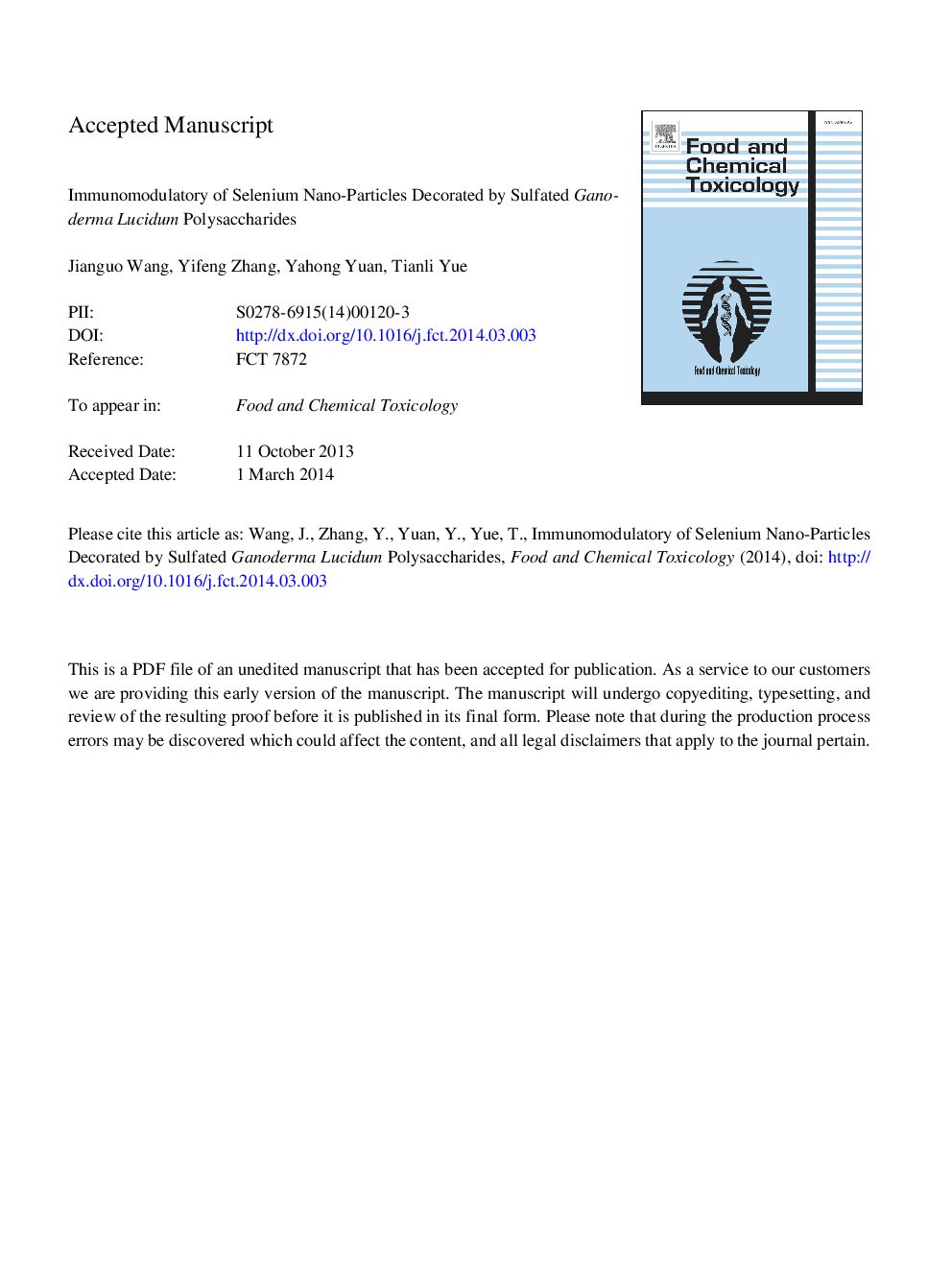| Article ID | Journal | Published Year | Pages | File Type |
|---|---|---|---|---|
| 5850513 | Food and Chemical Toxicology | 2014 | 36 Pages |
Abstract
In this study, we employed a one-step method to prepare selenium nanoparticles (SeNPs) decorated by the water-soluble derivative of Ganoderma lucidum polysaccharides (SPS). The SeNPs-SPS complexes were stable, and the diameter of the SeNPs was homogeneous at around 25 nm. We investigated the anti-inflammatory activity of SeNPs-SPS against murine Raw 264.7 macrophage cells induced by LPS. SeNPs-SPS were found to significantly inhibit LPS-stimulated nitric oxide (NO) production against Raw 264.7 macrophages. RT-PCR results reveal the down-regulation of mRNA gene expressions for pro-inflammatory cytokines, including inducible NO synthase (iNOS), interleukin (IL)-1 and TNF-α in a dose-dependent manner. However, the anti-inflammation cytokine IL-10 was markedly increased. In the NF-κB signal pathway, SeNPs-SPS significantly inhibited the phosphorylation of Iκ-Bα. Similar results were observed for inhibition of the phosphorylation of JNK1/2 and p38 mitogen-activated protein kinase(MAPKs), whereas ERK1/2 MAPK was not apparently affected by SeNPs-SPS. All of these results suggest that SeNPs-SPS complexes have anti-inflammatory potential modulating pro-/anti-inflammation cytokine secretion profiles, and that the mechanism is partially due to inhibition of activations of NF-κB, JNK1/2 and p38 MAPKs.
Related Topics
Life Sciences
Agricultural and Biological Sciences
Food Science
Authors
Jianguo Wang, Yifeng Zhang, Yahong Yuan, Tianli Yue,
